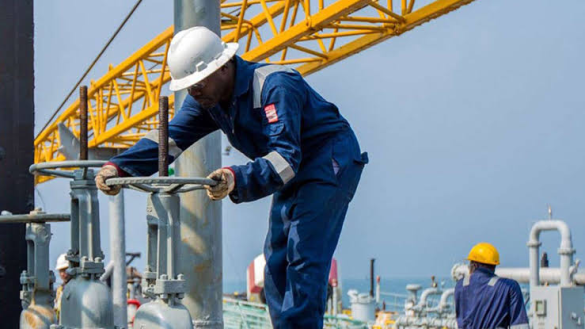Amidst the numerous challenges facing its oil-producing companies, Nigeria is proactively seeking strategies to enhance its crude oil production. Heineken Lokpobiri, the Minister of State for Petroleum (Oil), has affirmed the government’s commitment to increasing production levels in line with the 2024 budget projections.
Currently, Nigeria’s oil production stands at approximately 1.3 million barrels per day (bpd), falling short of the ambitious 1.78 million bpd target set for 2024. Despite skepticism from various stakeholders, the Nigerian National Petroleum Company Limited remains confident in achieving the goal, even eyeing a further increase to two million bpd.
The government, in collaboration with industry groups like the Independent Petroleum Producers Group (IPPG) and the Oil Producers Trade Section (OPTS), has been actively engaging with the National Assembly (NASS) to stabilize and increase oil production. Lokpobiri stated that the administration is committed to expediting all necessary processes to boost production levels.
The Nigerian oil sector is currently grappling with multiple challenges, including concerns from investors about the operating environment, global energy transition pressures, and local refinery operations reliant on imported crude oil. The persistent insecurity in the Niger Delta region further complicates the situation, directly impacting the industry’s competitiveness and investment attractiveness.
In response to these challenges, Lokpobiri highlighted recent initiatives and dialogues aimed at addressing these issues. He emphasized the government’s intent to leverage the transformative potential of the Petroleum Industry Act (PIA) to align stakeholder interests and improve sector productivity.
A key development in this direction is the Nigerian Navy’s launch of Operation Delta Sanity, aimed at enhancing security and facilitating increased crude production. Furthermore, Lokpobiri revealed ongoing discussions with the Turkish Government to adopt their indigenous technology for securing oil installations in Nigeria.
Abdulrazaq Isa, Chairman of IPPG, underscored the sector’s ongoing challenges, emphasizing the need for enhanced security in the Niger Delta. He stressed that creating a conducive operating environment is critical to curtailing crude theft and addressing the significant production decline experienced in recent years.
Nigeria’s journey towards transforming its oil sector is marked by a combination of challenges and opportunities. The government’s efforts, including international collaborations and security initiatives, reflect a comprehensive approach to addressing these challenges. As Nigeria continues to navigate through the complexities of the global energy landscape, the focus remains on optimizing its hydrocarbon resources for current and future goal.



